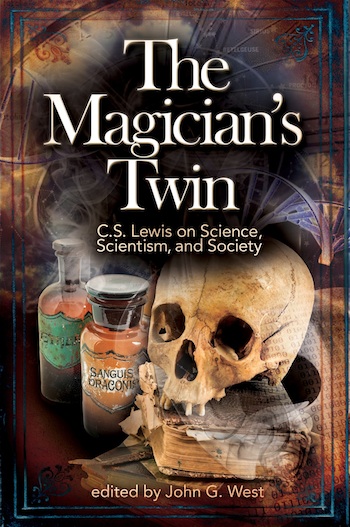Science vs. Scientism?
(The following is excerpted from the excellent book A World of Difference: Putting Christian Truth-Claims to the Worldview Test, Kenneth Richard Samples, BakerBooks, 2007.)
Broadly speaking, “science” refers to the empirical method for observing, analyzing, and interpreting the data of the natural world. This term also defines the knowledge gained by using such a method. While naturalists and non-naturalists agree on its value, naturalists tend to consider science as having privileged status with regard to knowledge. Some naturalists even readily embrace the exalted principle that sums up the optimistic attitude reflected in what is called “scientism”: “Science is the measure of all things.”
Definitely more than science, scientism asserts that science is either the only reliable method (strong scientism) or the best, most dependable method (weak scientism) for obtaining genuine knowledge. Naturalists who embrace scientism are convinced that the natural sciences are the only path that leads to knowledge and truth.
Scientism maintains a very narrow focus on the types of things it permits as candidates for authentic knowledge and truth. One article explains this position:
Naturalism as a world view is based on the premise that knowledge about what exists and about how things work is best achieved through the sciences, not personal revelation or religious tradition…Scientific empiricism has the necessary consequence of unifying our knowledge of the world, of placing all objects of understanding within a single, overarching causal context. (Naturalism.org)
Restricting the possibility of knowledge to the realm of the natural sciences means that religious, philosophical, aesthetic, and moral statements have little or no contribution to make in terms of knowledge and truth. The naturalist’s faith clearly resides in science (whether embracing strong or weak scientism). Those who embrace scientism also must readily embrace Darwinian or some other form of naturalistic evolution because it is the only origin-of-life theory that plays by the [fusion_builder_container hundred_percent=”yes” overflow=”visible”][fusion_builder_row][fusion_builder_column type=”1_1″ background_position=”left top” background_color=”” border_size=”” border_color=”” border_style=”solid” spacing=”yes” background_image=”” background_repeat=”no-repeat” padding=”” margin_top=”0px” margin_bottom=”0px” class=”” id=”” animation_type=”” animation_speed=”0.3″ animation_direction=”left” hide_on_mobile=”no” center_content=”no” min_height=”none”][scientism’s] rules. As a result any explanatory theory of life, and especially for humankind, must come purely from the natural universe, for any supernatural explanation has already been ruled out, a priori. A World of Difference, pp. 205-206.
The Magician’s Twin: C. S. Lewis on Science, Scientism, and Society
Beloved for his Narnian tales for children and his books of Christian apologetics for adults, best-selling British writer C.S. Lewis also was a perceptive critic of the growing power of scientism in modern society, the misguided effort to apply science to areas outside its proper bounds. In this wide-ranging book of essays, contemporary writers probe Lewis’s prophetic warnings about the dehumanizing impact of scientism on ethics, politics, faith, reason, and science itself. Issues explored include Lewis’s views on bioethics, eugenics, evolution, intelligent design, and what he called “scientocracy.” Contributors include Michael Aeschliman, author of C.S. Lewis and the Restitution of Man; Victor Reppert, author of C.S. Lewis’s Dangerous Idea; Jay Richards, co-author of the New York Times bestseller Indivisible; C. John Collins, author of Science and Faith: Friends or Foes?; and John G. West, co-editor of The C.S. Lewis Readers’ Encyclopedia.
The Magician’s Twin: C.S. Lewis and the Case against Scientism
(Video links to be edited soon.)
[/fusion_builder_column][/fusion_builder_row][/fusion_builder_container]

